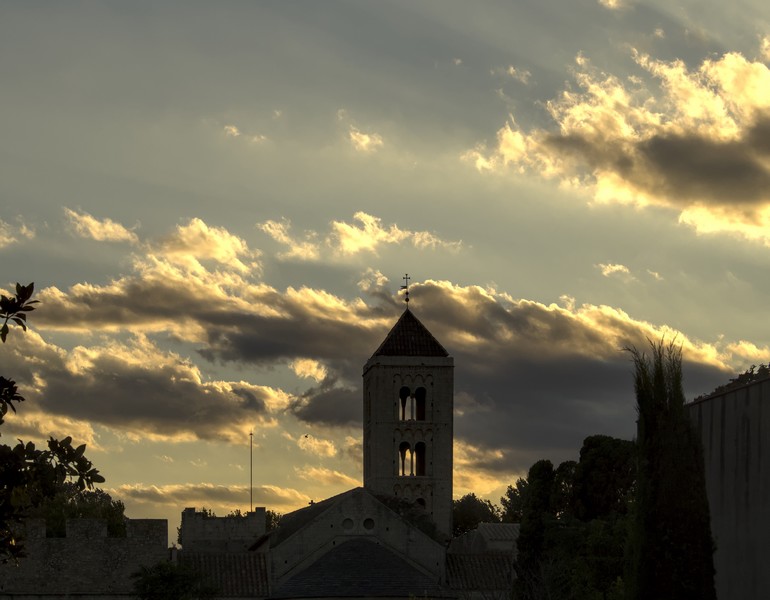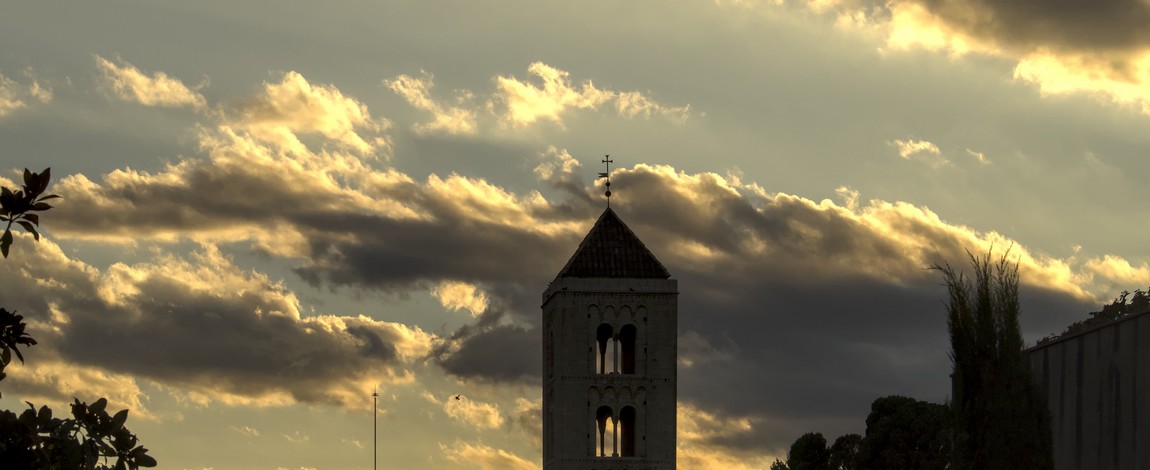This week I'm posting on Monday instead of Wednesday to share with you the programme of the Schubertíada, presented a while ago.

Here's to Schubert! This would be the headline, after the programme of the 32nd Schubertíada was presented a few hours ago. Here's to Schubert and his sense of friendship! Thanks to this, we are here, two hundred years later, celebrating his music.
The Schubertíada programme is extensive, and, as regular readers would know, you will need time and calm to review it. But regular readers would also know that I am doing a quick review to begin with. So, then, let's go and start with Schubert.
The Cosmos Quartet, Katharina Konradi and Joseph Middleton will offer a programme on Saturday 17 August that will be a small schubertiade for itself; it will include songs and chamber music, including lieder for voice and string quartet, as arranged by composer José Mara Sánchez Verdú. The concert of the Cor de Cambra of the Palau de la Música Catalana on Thursday 29 won't be entirely dedicated to Schubert, but almost; it is an opportunity to listen to Schubert's part songs, which are rarely programmed. Johannes Martin Kränzle and Hilko Dumno will come back to Vilabertran on Saturday 24 (they did a great recital two years ago!) to perform Winterreise, and I believe that it will be one of the closest and most moving versions we have heard recently. And, although I am only referring to song recitals, I wanted to mention at least the concert dedicated to Schubert's complete works for violin and piano, on Tuesday 27.
Schubert will undoubtedly be the composer with the greatest presence in recitals, as his songs will be sung in eleven out of the fifteen, including the two concerts by Artists Lied the Future, which this year will be Èlia Farreras and Lucas Huber Sierra; Inés López and Jesús López Blanco; Florian Stoertz and Aleksandra Myslek, and Eva Zalenga and Teodora Oprișor. Can you believe that I have been told some times: "you know, there is too much Schubert at the Schubertíada"? Well, beware of the Bayreuth Festival, then you will only find Wagner there. But it sometimes happens that the programmes proposed by the artists converge in some other composer that takes a prominent role, and in this edition it is the case with dearest Brahms (and I'm happy, of course). Pay attention.
At the opening concert, on Friday 16, Katja Maderer and Wolfram Rieger will start with a generous and beautiful group of Brahms's lieder; on Sunday 18, Brahms will share a program with Schumann, at the recital of Matthias Goerne and Alexander Schmalcz, while on Friday 23 he will do so with Mahler, at the concert of Andrè Schuen and Daniel Heide. There will still be a group of songs by the composer at Julia Kleiter and Julius Drake's recital on Wednesday 21. There are only four concerts, but what caught my attention is the space Brahms occupies.
If you are curious, we will be hearing Hugo Wolf, a prominent presence last year, in a single concert; Richard Strauss, who was omnipresent a few years ago (remember when Morgen was the summer hit?) will be represented with only three (beautiful) Lieder this year. Oh, what happened to you, Richard?
From the recital of Kleiter and Drake I would also like to highlight a great cycle, On this island by Benjamin Britten. This year, we will have a lot of English song because in addition to André Previn' Three Dickinson songs at the same concert, there will be the wonderful Sea Pictures by Elgar in the recital of Beth Taylor and Hamish Brown on Monday 26. This duo will be making their debut at the Schubertada with a very interesting program around the sea. But surely, in the English-speaking area, the composer revelation of the year will be the American William Grant Still; I'm quite sure we'll enjoy his music, presented by baritone Gabriel Rollinson and Hartmut Höll (what a joy to have him in Vilabertran!)
We will also have a bit of Slavic song, Dvořák and Tchaikovsky, performed by Erika Baikoff and Julius Drake, on Tuesday 20, and the French repertoire will be the focus of the recital by Malin Byström and Magnus Svensson on Wednesday 28; the program is very varied, but I'm excited for Duparc!
I will conclude at the beginning, with the first two song recitals at the Schubertada, which will be held in Vilajuga. On Saturday, October 10, the programme of David Alegret and Rubén Fernández Aguirre will focus on three poets, Tomàs Garcès, Josep Carner, and Mercè Rodoreda, including a premiere of the cycle Illa dels iris vermells, by Hector Parra. The next day, Elena Copons and Dreirdre Brenner will pay tribute to the great soprano Conxita Badia, with a charming program that includes one of my weaknesses, La rosa als llavis by Eduard Toldrà.
I'm aware that I've missed many details, but look at the length of the post! May I suggest that you browse the website of the Schubertíada with time, paper, and pencil to make your own Schubertada? I hope we'll meet there!
Now, I need to choose a song. What do you think if I share one by William Grant Still, as a sample, and I present him properly within a few weeks? We will listen to Parted, the third song from Songs of separation, with a poem by Paul Laurence Dunbar and performed by Robert Honeysucker and Vivian Taylor.
She wrapped her soul in a lace of lies,
With a prime deceit to pin it;
And I thought I was gaining a fearsome prize,
So I staked my soul to win it.
We wed and parted on her complaint,
And both were a bit of barter,
Tho' I'll confess that I'm no saint,
I'll swear that she's no martyr.















Comments powered by CComment